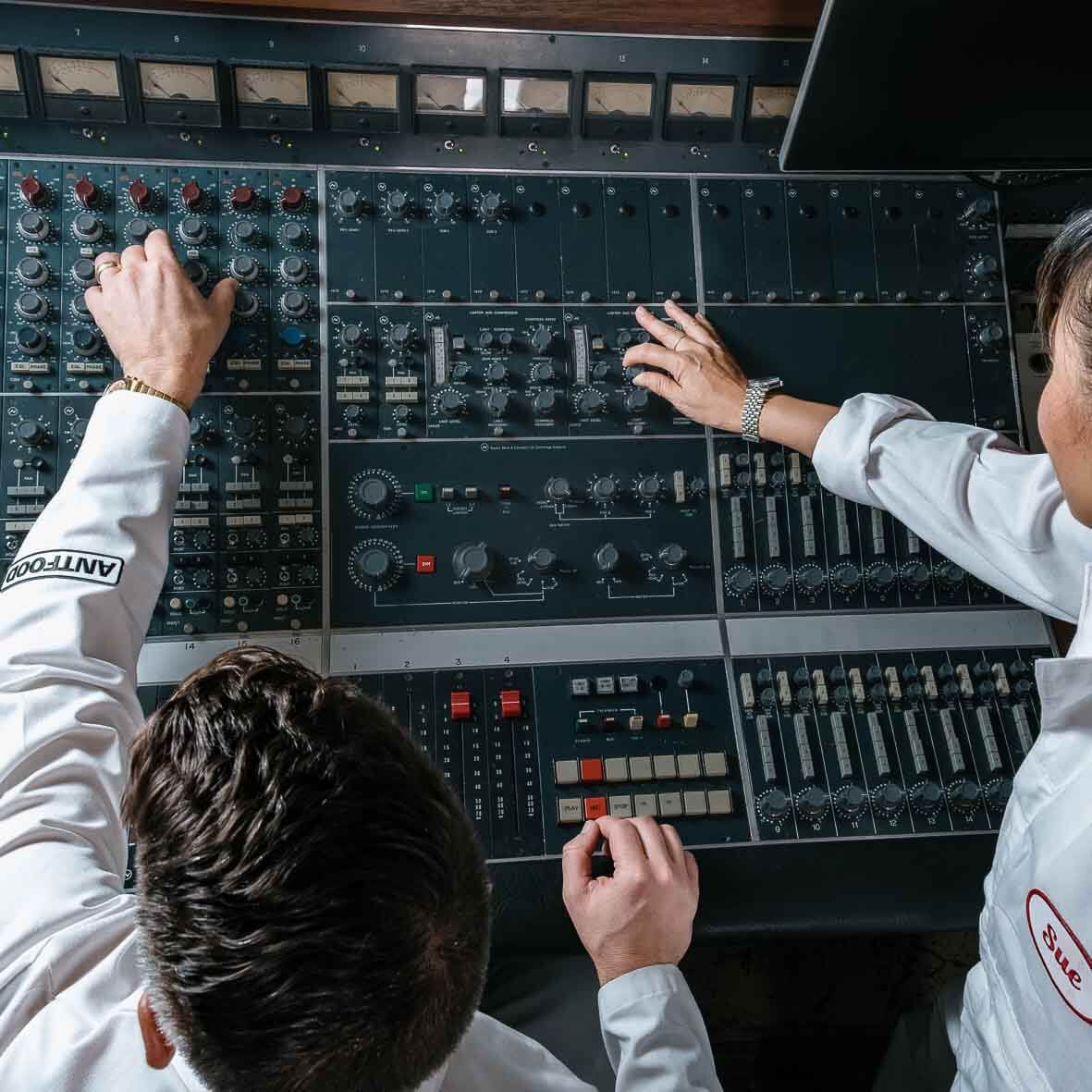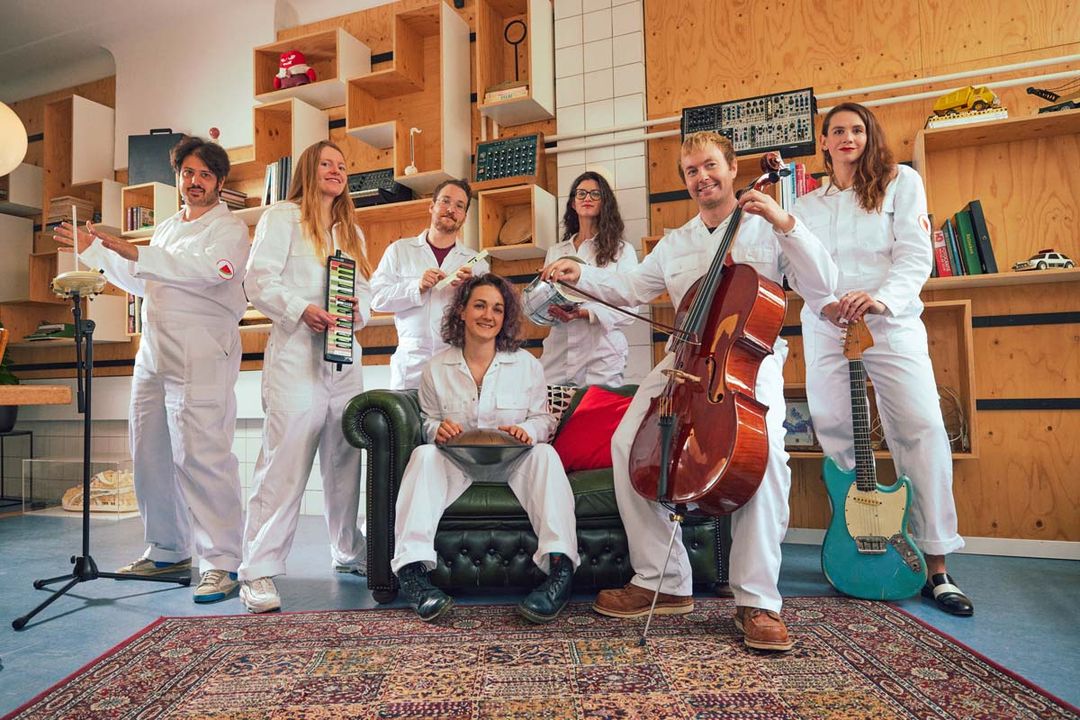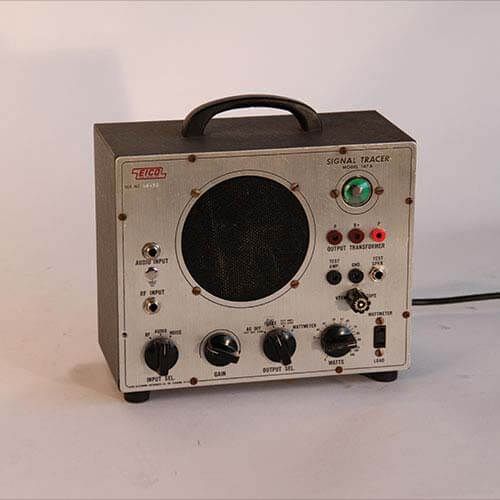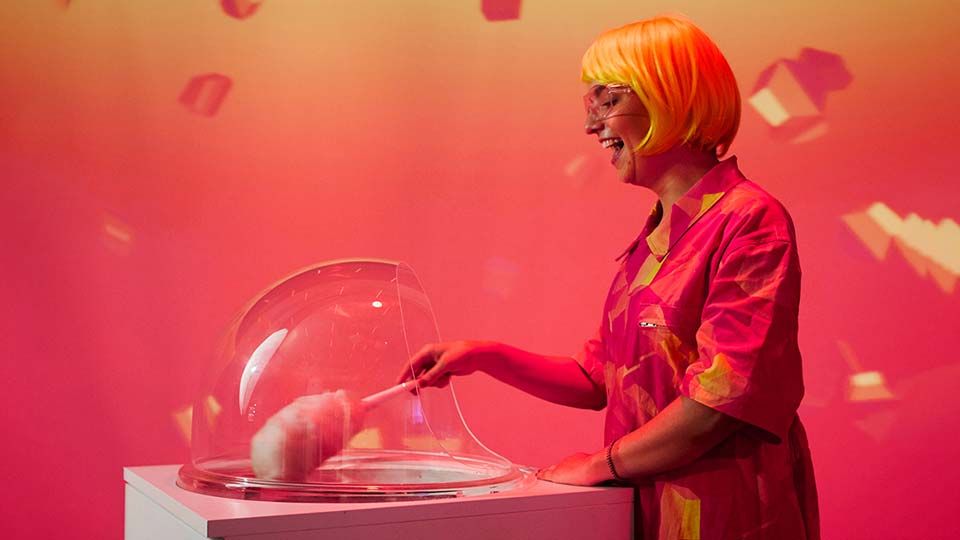What Kind of Music Do You Need?
Library, Custom, and Licensed Music: When to use which and why
So, you’re creating a film to advertise your company’s new product. You’ve devised a unique art direction, you’ve landed just the right talent to act in it, and you have a clear vision for the edit. Now it’s time to think about the music. This will be the easy part, right?
Right?
You’ll just go through your Spotify playlists and find something cool, right?
Right?
While finding the right music for your project shouldn’t break your back, sound choices should be a part of the decision-making starting in preproduction. Discussing the style, emotion and impact of the music upfront can create natural synergies with the other parts of your project, making the whole greater than the sum of its parts. As you shape your art direction, write your script, and make casting decisions, ask yourself: What type of music will best support these choices? What kind of soundtrack will strengthen the story I want to tell?
When ideating music, keep in mind that certain approaches—especially those using well-known or licensed tracks—often require significant lead time. Licensing music involves navigating rights, approvals, and budgets, which can be complex and time-consuming, especially for famous songs. If this process only begins at the end of production, you risk learning too late ideal song is unavailable or unaffordable.
If you’ve made it this far, you’re already on the right track (nice!), but I’m sure you’re asking where you can source music reliably and what the creative and logistical implications are. Can you use your favorite Spotify songs? Is all stock music generic or are there any good options? And who are these composers you’ve heard so much about?
When it comes to sourcing music for advertisements, there are three main avenues: library music, custom compositions, and licensed tracks. Each approach has its unique creative and logistical implications, and each can be a good fit depending on your vision, timeline, and budget. As you navigate these three paths, we’ve put together a cheat sheet for you below:
Library Music
Library music (I avoid the term stock music) refers to pre-recorded, off-the-shelf music solutions that are available for immediate, one-stop license, either through one-off licenses or subscription agreements. Library music is ideal for projects with tight timelines or smaller budgets, since it lets you easily test out multiple tracks in your edit and quickly license the one that fits best.
Keep these considerations in mind if you’re pursuing a library music solution:
- Most music libraries aren’t able to customize their music. What you hear is what you get. You don’t like the trumpet in this song or you need the drums to come in a few seconds sooner? The vast majority of music libraries won’t be able to make those changes.
- Most libraries don’t offer exclusive licenses, so if you select a song, it could still be used by others, even competitors. Imagine if Ferrari and Lamborghini released videos in the same week using the same song. That’s the risk you run with a library solution and why many large brands tend to avoid them for their most important moments.
- Music in libraries can feel generic of undifferentiated. To maximize the value of their commissions and acquisitions, libraries tend to prioritize music that appeals to a broad range of clients and use cases. As a result, the music is typically functional and versatile, but it may lack distinctiveness or personality.
Success Story: BUCK B-Corp
When BUCK needed an efficient and cost-effective music solution for a social media video announcing their B-Corp status, they went to Antfood’s music library: AntfoodBuffet.
AntfoodBuffet is different from most music libraries because each song is unique and fully customizable (which is rare in the landscape of libraries).
BUCK found a track that worked well for them and their announcement. In a few clicks they were off and editing instantaneously and posted within days.
Custom Music
Pursuing custom music can be the most rewarding and dynamic approach to soundtracking a project. It allows the music—and the audio as a whole—to uniquely reflect the character of the work, giving it a distinct voice and supporting each key storytelling moment with intention.
A custom score shapes itself around your film edit, rather than forcing your edit to match a pre-recorded track. Bespoke music also opens the door to unexpected sound combinations, genre shifts, and bold stylistic choices that simply wouldn’t exist in off-the-shelf recordings. And best of all, it allows for a seamless blend of music and sound design, turning your audio into a truly immersive experience. The creative possibilities are endless.
Here are a few things to weigh before creating an original score for your project:
- Creating great music takes time; even the most talented composers can't produce meaningful work at a moment’s notice. The time investment extends beyond the composer; collaborative music development requires thoughtful briefing, feedback, and direction from stakeholders too. It's also important to factor in that briefs involving vocals or orchestration typically require additional lead time.
- Before selecting a composer or music house, do some research to find talent that fits your way of working and that has some prior work in the style that you’re looking to hit. Composers are people and function as an extension of your team. Who do you want in the trenches with you, and who can you trust with your creative vision?
- A great way to brief composers is by providing references.
Put time and thought into your references. This is a great opportunity to be adventurous and different. Don’t be the one millionth person to use Explosions in the Sky as a reference. Dig through some music on Spotify and in similar advertising/film work and identify what you like and don’t like about it. That will give your composers a good understanding of what you’re looking for and what to steer away from. Often, displaying references is more effective than telling. Once you’ve chosen a reference, be ready for the custom composition you’ve commissioned to have similarities but ultimately be different. Your composers are developing a unique piece of music, and that is what you’ve hired them to do. If you want something that sounds exactly like your reference, license your reference (see the section below).
Success Story: Google Next 2025
Google Cloud came to Antfood with an inventive custom music brief for their Next 2025 Anthem piece. Below is a snapshot of the ask:
An improvised drum intro, tightly scored to visuals, leads into an anthemic body that blends humanity with synth in a bad ass way. The body builds to an epic culmination and the film concludes with a reprise of the drum solo.
Try to find a prerecorded song that hits those notes.
The Antfood team worked closely with Google to craft a unique composition that not only blended these disparate influences but also married tightly to the visuals and integrated holistically with voice over and sound design. When last-minute notes came in, we were able to make adjustments on the fly and get the music polished in a way that wowed both Google and the audience during their Next 2025 conference.
Licensed Music
Maybe this title is a misnomer. All music used in advertising needs to be licensed, but this approach refers specifically to licensing music that has been previously released commercially on a standalone record (think music you hear on the radio or on streaming). This approach is unique because it not only provides music for your project, but it ties your film to a specific cultural touchpoint. Picking a well-known song for an advertisement can galvanize fans of that music, useful when you are targeting a specific demographic. For example, if you want to sell golf clubs to men aged 40-65, Aerosmith’s “Sweet Emotion” or Tom Petty’s “I Won’t Back Down” are solid bets. But, by pinning your messaging to a cultural touchpoint, you risk alienating people who aren’t in your demographic or people who, for whatever reason, don’t like that song. You risk being the cab driver in this Big Lebowski clip.
To avoid the high costs and wide connotations that come with huge, well known songs, licensing music from up-and-coming acts is an effective technique. The artists themselves are generally amenable to licensing their music for use in advertisements. Since streaming payouts are so low, sync licensing revenue can make a huge impact for emerging acts. Using the right music by an artist who hasn’t yet broken into the mainstream can cement your brand as a trendsetter or tastemaker.
A few things to remember if you’re planning to license existing music for ads:
- Well-known songs cost a lot. For good reason. Millions of people know and love those songs. The rights holders know that and charge as such. Prices fluctuate quite a bit depending on the terms and type of project, you can generally expect to pay well into six figures to license a well-known song for advertising.
- In many cases the rightsholders of a song are disparate. It’s also worth explaining that songs are broken into two parts: the composition (the words and notes) and the recording (the actual recorded realization of the song). Further, in many cases, the publishing and master recording rights are broken up into even smaller divisions between songwriters and other rightsholders, and you need approval on usage and price from each rightsholder, which can be tedious and time-consuming.
- When editing prerecorded songs to your film, it is really helpful to have the stems of that song (different parts broken out into their own files, like vocals, drums, bass, guitars, etc.) in order to make smooth edits of the music. Some recordings, especially older recordings, may not have stems accessible, which limits your ability to do creative music edits.
- Covers are an option. If you don’t want to expend the cost of licensing the master recording, if you want more flexibility than with the file you have, or if you want to put your own twist on a song, you can explore recording a cover. Keep in mind that you still need to license the composition even when recording a cover.
Success Story: Car Gurus
CarGurus was looking for a well-known song to soundtrack their “Big Deal” campaign, one with a clear connection to the road and adventure and tells the journey of new experiences and discovery. After thoughtful discussion with the agency and brand, Antfood navigated the complex rights and pricing to secure the publishing rights for “On the Road Again”, and we recorded a cover of this classic tune to best fit the tone of CarGurus’ “Big Deal” ad.
If you’d like a partner to help navigate the music and sound side of your project, that’s where Antfood comes in. Our in-house team spans a wide range of disciplines, and we love collaborating to find the right fit—whether that’s Library, Custom, or Licensed music. Whatever your needs, Antfood has you covered.



